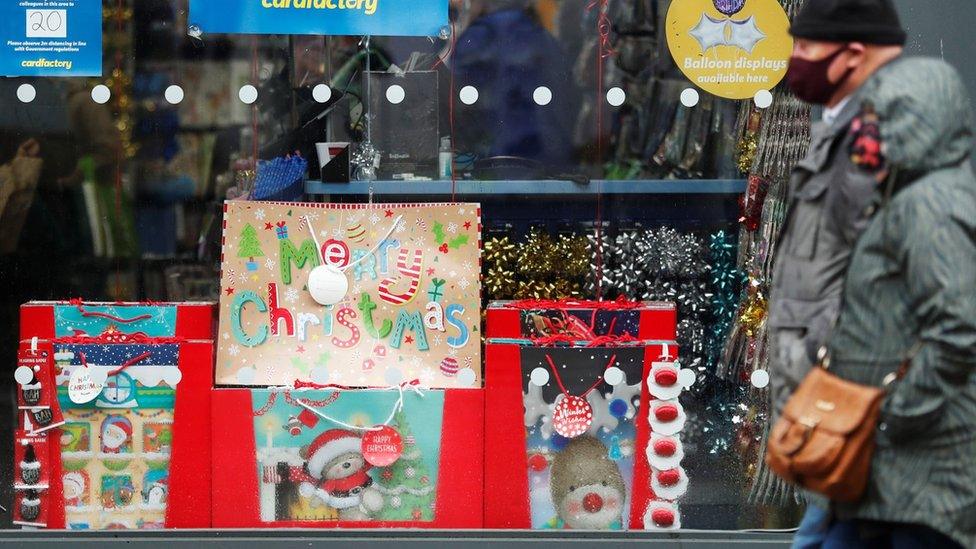Covid: Scots children should stay at home at Halloween
- Published
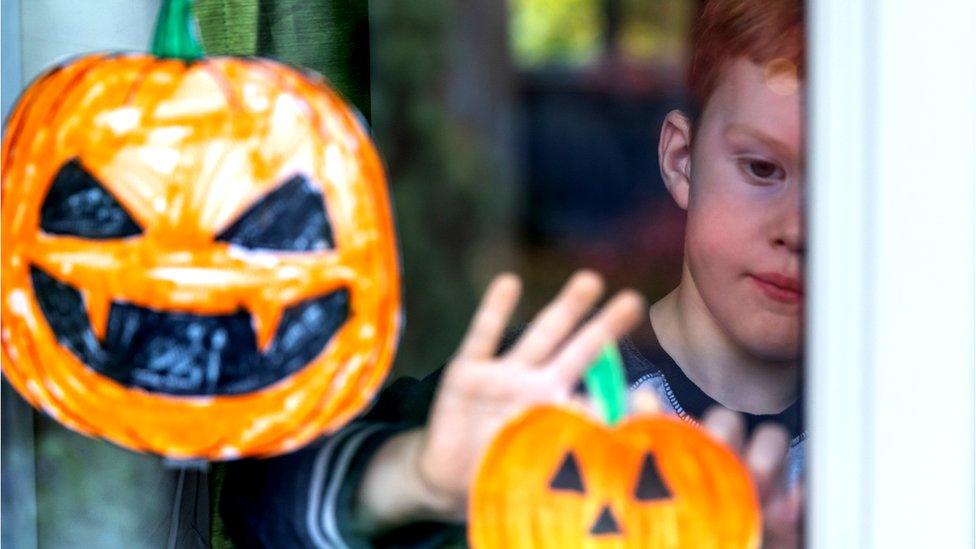
Parents are being urged to hold celebrations at home
The Scottish government has told children to stay at home this Halloween.
In guidance issued a week ahead of 31 October, people have been told guising (going door-to-door) and parties are not encouraged.
Instead, people have been asked to have safe Halloween celebrations at home.
It comes as clinical director Jason Leitch suggested to the BBC that the central belt could be put into tier three restrictions.
The Halloween move was announced on the Scottish government's Parent Club website, external.
Deputy First Minister John Swinney said allowing children to go guising to neighbours this year would increase the risk of the spread of Covid-19.
"Under the current restrictions it is not possible to meet up indoors or in large groups outdoors, so the safest thing to do this year is to stay at home," he said.
"I know guising is a big part of Halloween and children will be sad to miss out, but as door-to-door guising brings an additional and avoidable risk of spreading the virus, our clear advice for families is to avoid it.
"Children can still get dressed up and share jokes with their families, and our Parent Club guidance has lots of fun and creative ideas for families to enjoy a safe celebration at home."
'Not safe right now'
Scots have also been told not to hold large gatherings in their gardens for Bonfire Night due to the cancellation of organised events.
Mr Swinney said it was vital the public adhered to the rules on meeting up with other households to stop transmission of the virus.
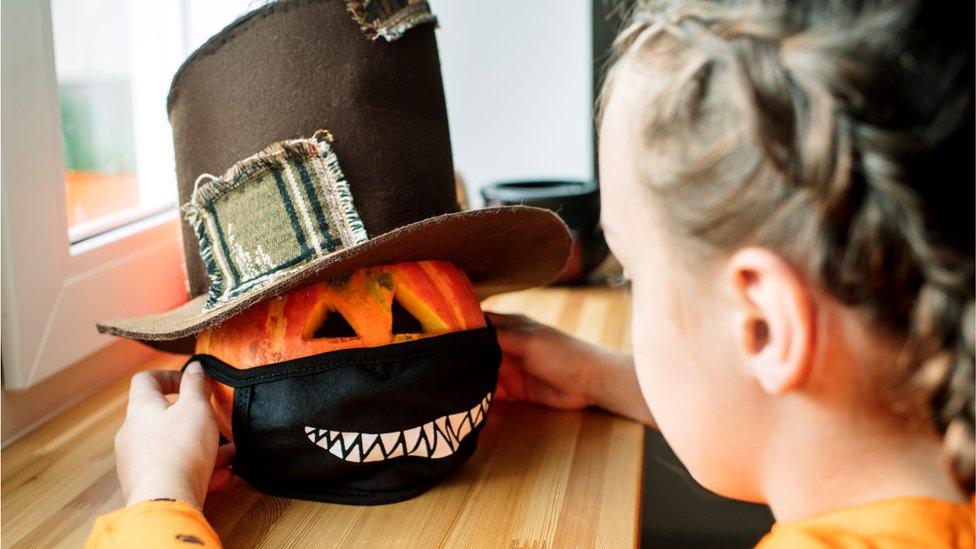
Trick-or-treating has been discouraged due to a high risk of spreading Covid infection
"We know that some people may consider using fireworks in their back gardens," he said. "If you do plan on using fireworks this Bonfire Night, please do so responsibly and safely.
"Adapting alternative celebrations and sticking to the rules in place can go a huge way to ensuring everyone's safety."
The announcement of the guidance follows comments by First Minister Nicola Sturgeon on Thursday, who said it was "not safe" for guising to be allowed this year, due to Covid-19.
At the coronavirus briefing, she said: "It's not safe right now to do these things as normal, and it would not be fair of me or right of me to say otherwise.
"To parents, to children; think of ways you can celebrate in a way that is safe and doesn't have children or others coming into unnecessary contact with others."
On Friday, the first minister announced that Scotland would be entering a new five-level system of coronavirus restrictions from 2 November..

Prof Leitch told BBC Breakfast on Saturday that preparations were being made to decide which level of restrictions each area of Scotland would be placed in.
He said: "There is a meeting later today with a small team of analysts, advisers, who will look at the early stages of what that allocation might look like. Then there will be conversations with local government, conversations with central government, with the first minister and deputy first minister about where that goes.
"But roughly speaking, the central belt Glasgow, Edinburgh, Ayrshire and Arran, that strip across the middle, where 3.5m of Scots live, that would be tier three and roughly, north and south of that - tier two."
'Could have been gentler'
Talking about comments he made about being prepared for a "digital Christmas" earlier this week, Prof Leitch said he may have been too harsh.
He said he was trying to be "realistic" but to also encourage people that "what we do now matters for eight weeks from now".
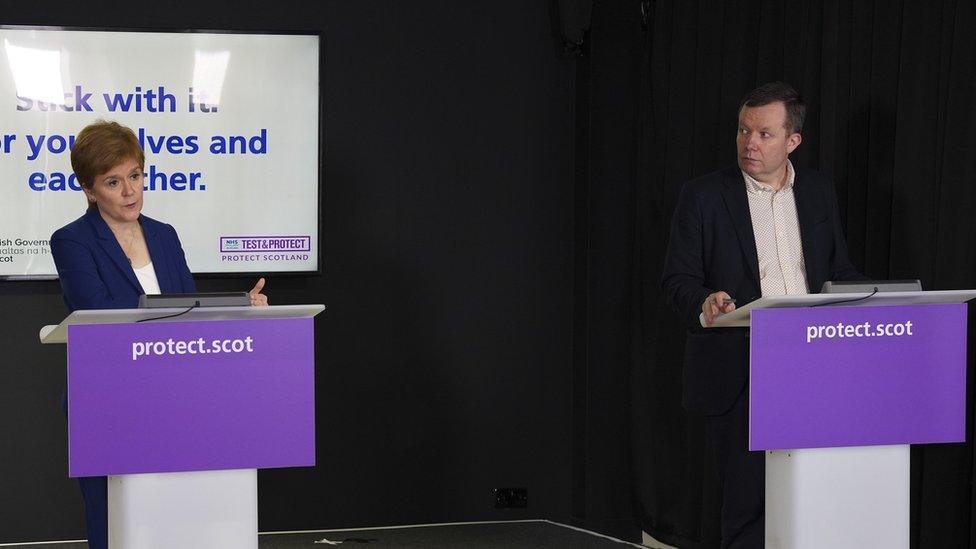
Nicola Sturgeon said she may make Prof Leitch dress up as The Grinch following his comments
He said: "Realistic looks like some kind of family Christmas but it will depend how well we get the numbers down.
"I could have perhaps been gentler in my use of the phrase digital Christmas but I just mean you won't be flying to visit relatives probably, you may not have large multi-household gatherings in your home. You won't be having six families but you may well be allowed to have two or three families if that is allowed.
"Nobody can cancel Christmas, not even the national clinical director for Scotland. It's happening, it is just to make it as safe as we possibly can."


- Published23 October 2020
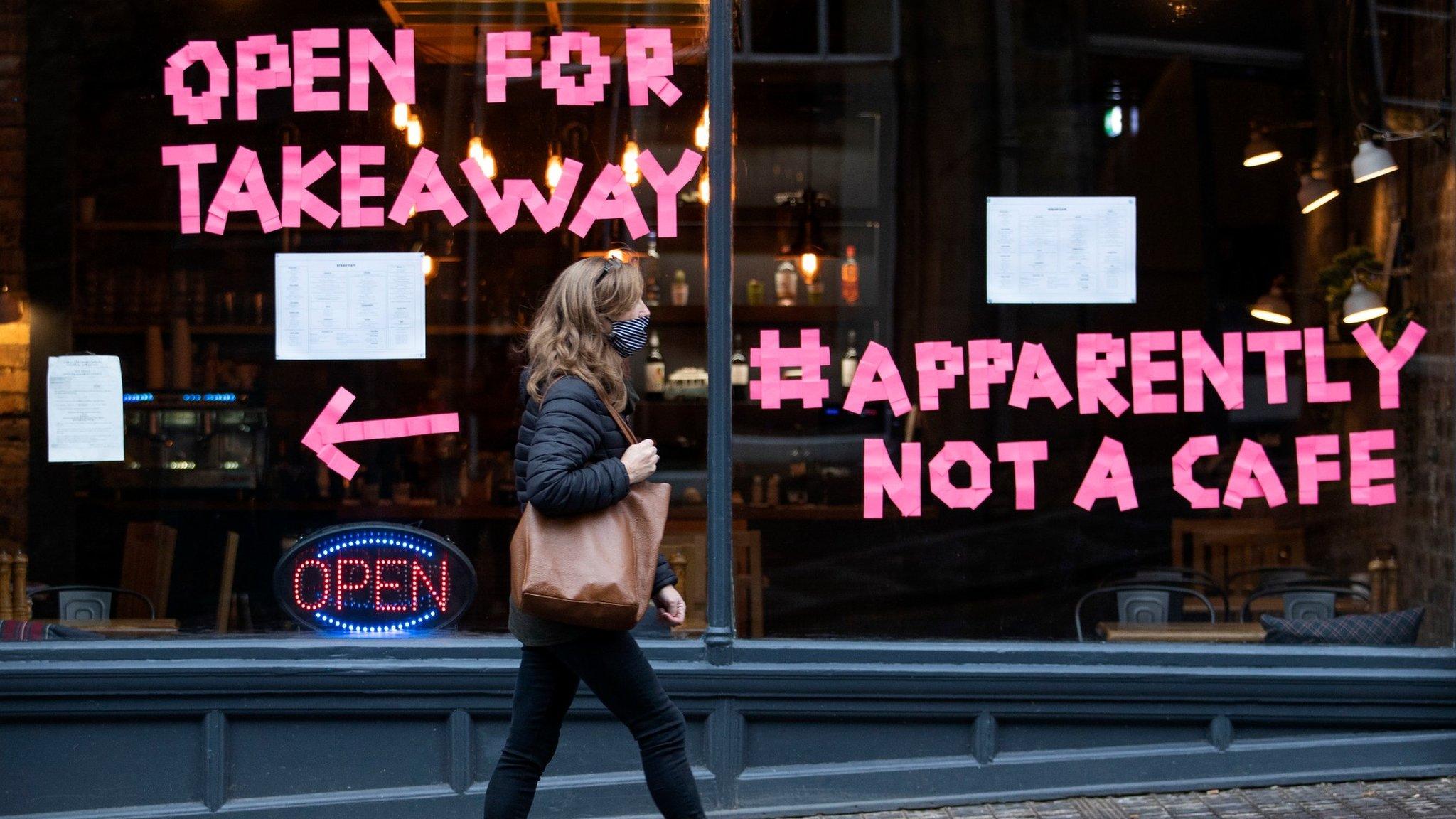
- Published8 December 2020
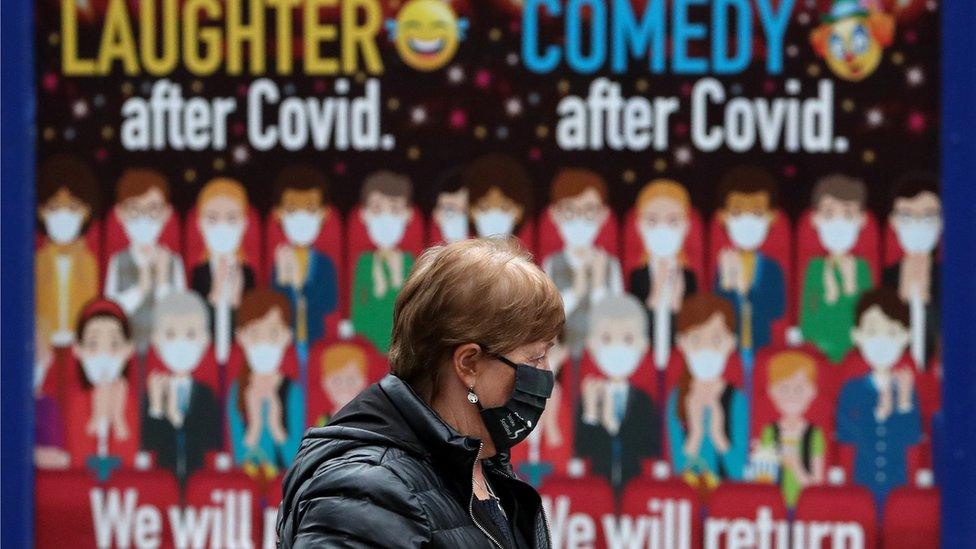
- Published22 October 2020
